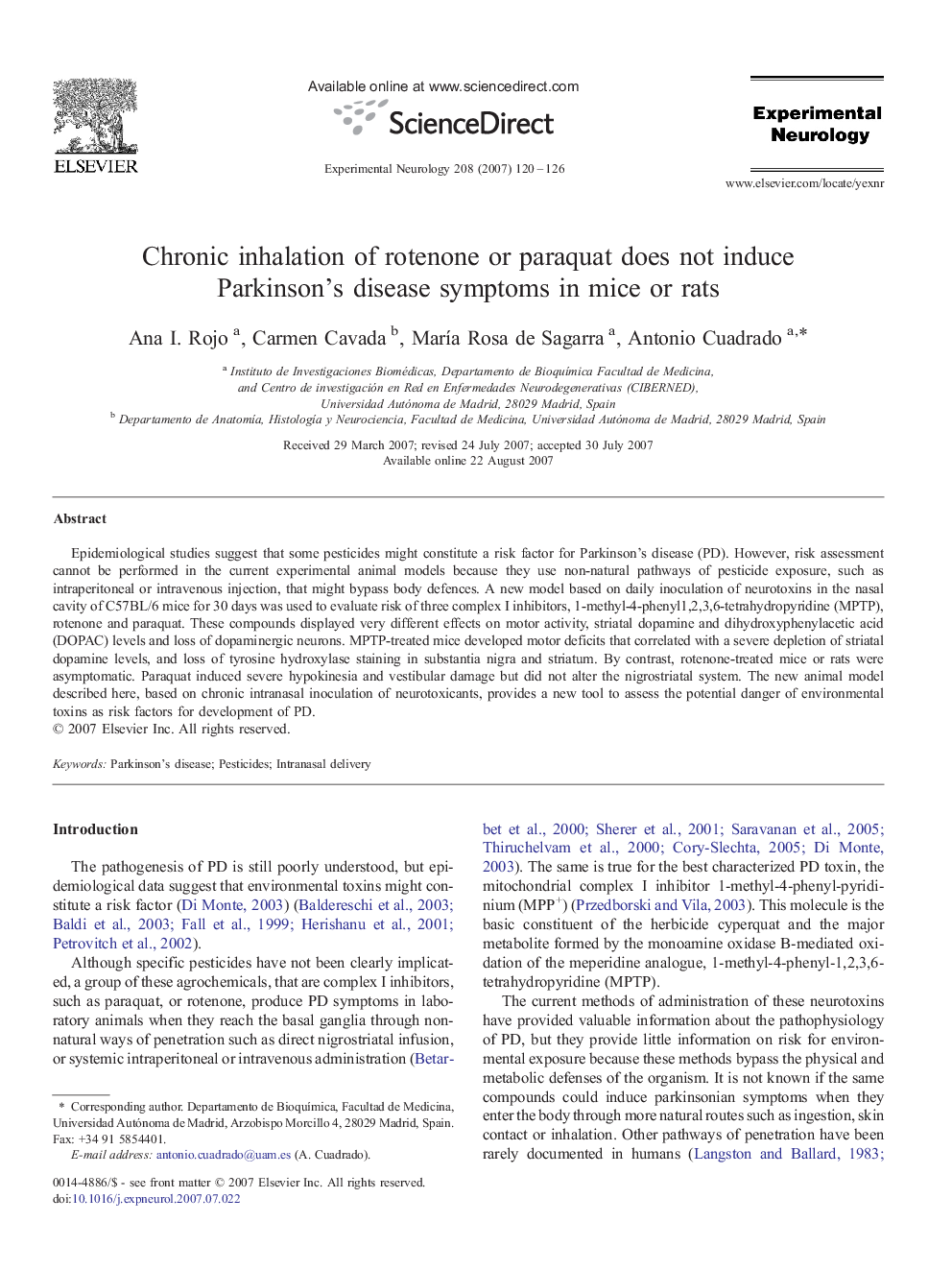| کد مقاله | کد نشریه | سال انتشار | مقاله انگلیسی | نسخه تمام متن |
|---|---|---|---|---|
| 3056898 | 1186580 | 2007 | 7 صفحه PDF | دانلود رایگان |

Epidemiological studies suggest that some pesticides might constitute a risk factor for Parkinson's disease (PD). However, risk assessment cannot be performed in the current experimental animal models because they use non-natural pathways of pesticide exposure, such as intraperitoneal or intravenous injection, that might bypass body defences. A new model based on daily inoculation of neurotoxins in the nasal cavity of C57BL/6 mice for 30 days was used to evaluate risk of three complex I inhibitors, 1-methyl-4-phenyl1,2,3,6-tetrahydropyridine (MPTP), rotenone and paraquat. These compounds displayed very different effects on motor activity, striatal dopamine and dihydroxyphenylacetic acid (DOPAC) levels and loss of dopaminergic neurons. MPTP-treated mice developed motor deficits that correlated with a severe depletion of striatal dopamine levels, and loss of tyrosine hydroxylase staining in substantia nigra and striatum. By contrast, rotenone-treated mice or rats were asymptomatic. Paraquat induced severe hypokinesia and vestibular damage but did not alter the nigrostriatal system. The new animal model described here, based on chronic intranasal inoculation of neurotoxicants, provides a new tool to assess the potential danger of environmental toxins as risk factors for development of PD.
Journal: Experimental Neurology - Volume 208, Issue 1, November 2007, Pages 120–126